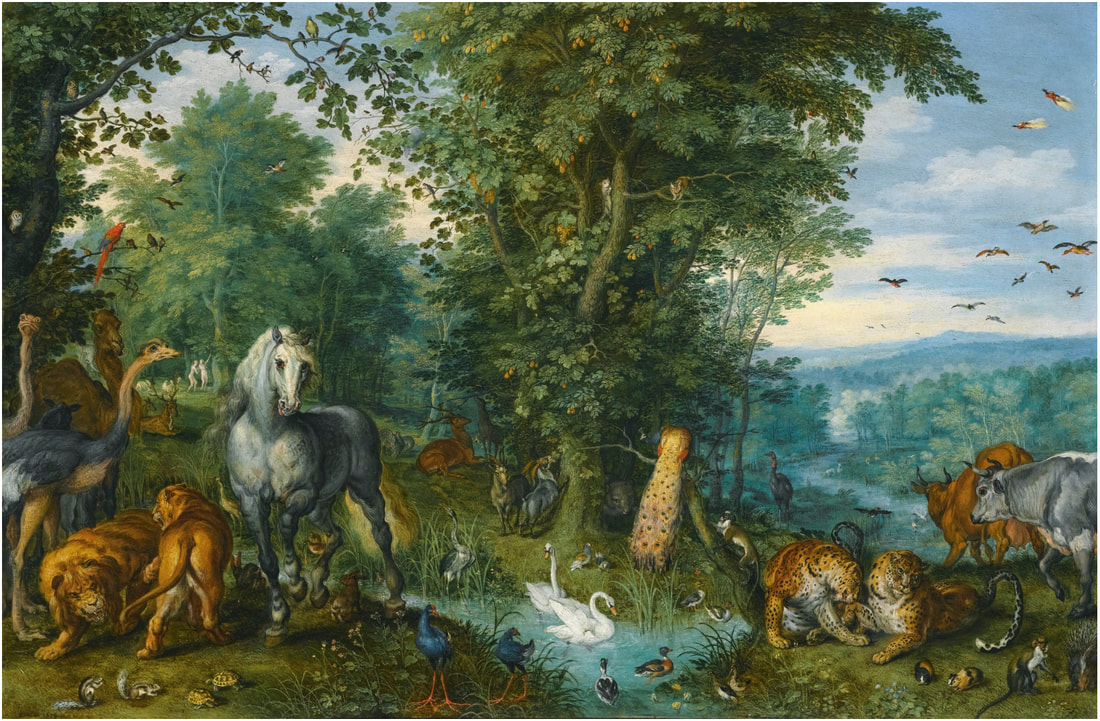|
We’ve spent the weeks of Lent looking at the idea of lament.
This week, the last one of Lent, we’re going to ponder the end of lament. What will it be like to no longer need to lament?
First, read Isaiah 2:2-3 and Isaiah 25:6-10. Just click on the scripture to open it up in a new window. This passage is a prophecy from Isaiah. God has set a celebratory feast upon a mountain. Sadness will end, and death will be defeated. All we must do is wait for this to happen.
Next, read Revelation 21:1-8. Again, click on the scripture to open it in a new window. This portion of the book of Revelation is a description of a vision of God’s new kingdom. Note that “passed away,” according to our study, does not mean that the old heaven and earth were annihilated. They were instead transformed into the new heaven and new earth.
As you read these passages, you may have noticed how hopeful they are in the future. We lament because we have hope for the future. We trust that God is able to bring about a future like those we’ve just read.
I think it is important to consider part of this future that we hope for. The descriptions in these passages talk about what the future will not have. It will not have tears and sadness. It will not have injustice. It will not have death. We might picture heaven as having mansions and gold streets… but we picture it being somewhere else! But creation will be redeemed as well as humanity. I’ve never been a huge fan of the heavenly mansions, so I quite like this picture. It looks like a restoration to the garden of Eden, except it won’t be only the garden. It will be the whole world! There will not longer be somewhere outside the garden to be expelled. More importantly, we will always have the presence of God. He will be right there. There will be no perceived absence of God, and thus no reason to lament.
Jan Bruegel, the Elder. The Garden of Eden. (c. 1610-1612).
A part of lament that we’ve discussed is that we can lament in our life’s circumstances. We show our trust in God by crying out for His help in our day-to-day lives. We’ve also looked at lament in song.
For this final lesson, the book suggested the hymn “Life Every Voice and Sing.” The words were written as a poem by James Weldon Johnson, a leader in the civil rights movement. His brother, John Rosamond Johnson, set those words to music. As you listen to one or more of the versions below, consider both the lament and the hope in the words.
This hymn is still telling a story of both lament and hope. People are still writing songs and poems that feature both lament and hope. In a daily email subscription that I receive, Father Richard Rohr discussed one recent example of a poem. (If you read our weekly Sunday School lessons, it also goes nicely with our recent discussions of prophets.) Take a moment to read his thoughts here on the poem, "The Hill We Climb." If you would like to read the poem, you can follow this link.
Right now, we all have reasons to lament. But we also have hope for the future, where we will no longer need to.
Closing Prayer
God of our weary years, God of our silent tears, you have brought us thus far on our way. Though the road continues out before us, you give us hope: Hope that our work will bring your kingdom on earth as it is in heaven. Hope that you will walk beside us every step of our journey. For your unfailing love for us, and the hope you give us, we give you thanks. Our trust is in you. Amen.
0 Comments
Leave a Reply. |
AuthorWe are a small, rural Presbyterian church in southwestern Pennsylvania. Archives
July 2024
Categories
All
|


 RSS Feed
RSS Feed